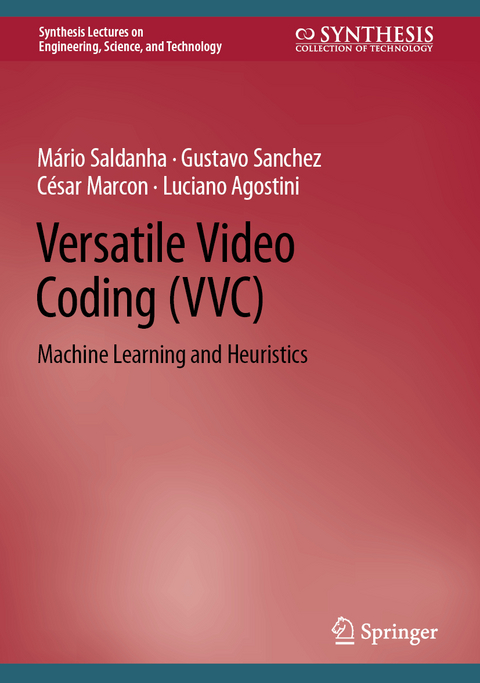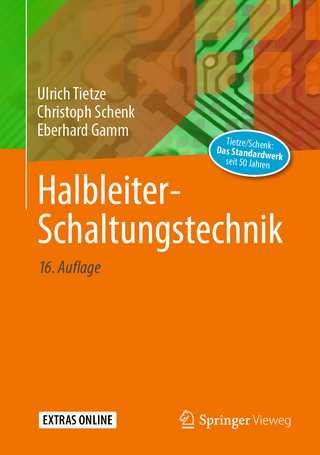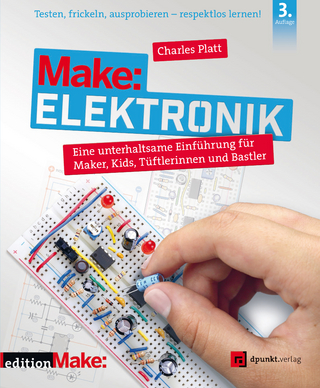
Versatile Video Coding (VVC)
Springer International Publishing (Verlag)
978-3-031-11639-1 (ISBN)
Mario Saldanha received the B.S. degree in Computer Science from the Federal University of Pelotas (UFPel), Pelotas, RS, Brazil, in 2016. In 2018, he received his M.Sc. degree in Computer Science from the UFPel. Saldanha obtained his Ph.D. degree in Computer Science at the UFPel in 2021. He has more than 10 years of research experience in algorithms and hardware architectures for video coding. Currently, he is an Information Technology Analyst at the Federal Institute Sul-Rio-Grandense (IFSul) and a member of the Video Technology Research Group (ViTech) at the UFPel. His research interests include complexity reduction and hardware-friendly algorithms for 2D/3D video coding. Gustavo Sanchez is a Professor at IFSertaoPE - Instituto Federal do Sertao de Pernambuco in Salgueiro, Brazil. Sanchez received the Electrical Engineer degree from the Sul-Rio-Grandense Federal Institute of Education, Science and Technology and B.S. degree in Computer Science from the Federal University of Pelotas. He received his M.Sc. degree in Computer Science from the Federal University of Pelotas and his Ph.D. degree in Computer Science at the Pontifical Catholic University of Rio Grande do Sul. His research interests include complexity reduction algorithms, hardware-friendly algorithms and dedicated hardware design for 2D and 3D video coding. Cesar Marcon is a professor at Pontifical Catholic University of Rio Grande do Sul (PUCRS) since 1995. He received a B.Sc. degree in Electrical Engineering, M.Sc. degree in Microelectronics and Ph.D. in Computer Science from the Federal University of Rio Grande do Sul (UFRGS) in 1989, 1993, and 2005, respectively. He is Researcher PQ (title of research productivity recognition provided by CNPq). Prof. Marcon is a Senior Member of the Institute of Electrical and Electronics Engineers (IEEE) and a member of the IEEE CAS, Association for Computing Machinery (ACM), and Brazilian Computer Society (SBC). He is an advisor of M.Sc. and Ph.D. graduate students at the Graduate Program in Computer Science and Graduate Program in Electrical Engineering, both programs of PUCRS. Author and co-author of more than 150 papers published in prestigious journals and conferences, book chapters, and technical reports covering topics of Network-on-Chip, Multiprocessor System-on-Chip, Video coding, and Wireless Sensor Networks. He is a member of the Brazilian Association of Technical Standards (ABNT) and the Brazilian Industrial Development Agency (ABDI). From 2009 to 2010, Professor Marcon was responsible for the Computer Engineering Course at PUCRS. He has advised and co-advised dozens of undergraduate students, Ph.D., M.Sc, and postdoctoral fellowship researchers. Prof. Marcon participates/participated as coordinator/researcher of several projects in telecom, telemedicine, and IoT. The budget of these projects surpasses US$ 5 million. Currently, he is a co-founder and advisor of two high-technological startups. Luciano Volcan Agostini is an associate professor at Federal University of Pelotas (UFPel), Pelotas, Brazil, since 2002, working at the Computer Science area. He is a professor and researcher at the Master and Doctorate in Computer Science courses and at the undergraduate courses of Computer Science and Computer Engineering. He also leads the Video Technology Research Group (ViTech) at UFPel. Currently he is a Brazilian CNPq distinguished researcher (PQ level 2). He received the M.Sc. and Ph.D. degrees in Computer Science from Federal University of Rio Grande do Sul (UFRGS), Porto Alegre, Brazil, in 2002 and 2007, respectively, and the B.Sc. degree in Computer Science from UFPel, in 1998. He had a sabbatical period at Lisbon University from 2017 to 2018. He was the Vice-President for Research and Graduate Studies at UFPel from 2013 to 2017, when he was one of the leaders in the creation of the Conectar incubator and the Pelotas Technological Park. Currently he is a member of Computer Science Advisory Committee of Rio Grande do Sul State Research Support Foundation (FAPERGS). He has experience in the Computer Science area, with emphasis in Visual Signal Compression, Digital Systems and Computer Architecture and Organization. His research interests include: (i) hardware design for image and video coding; (ii) video coding algorithms, (iii) AV1, VVC, VP9, HEVC and H.264/AVC encoders, (iv) 3D and 360 video coding, (v) light fields and point clouds encoding, (vi) machine learning based solution for visual signal compression, (vii) digital design, and (viii) microelectronics. He has authored over 300 published papers in journals and conference proceedings and several awards for best papers in international and national events. He was a member of the organization committees of several international and national events (SBCCI, SBMicro, LASCAS, ICECS, AICAS, ISCAS, etc). He is Associate Editor of IEEE Transactions on Circuits for Video Technology (TCSVT), IEEE Open Journal of Circuits and Systems (OJCAS) and Frontiers in Imaging. He was a Guest Editor of IEEE Transactions on Circuits and Systems I: Regular Papers (TCAS-I) and Springer Analog Integrated Circuits and Signal Processing (ALOG). He served as a Program Committee member in many conferences, and he also served as reviewer of the most important journals in his research area. He is an IEEE and ACM Senior Member. He is a member of the IEEE Circuits and Systems Society (CAS), IEEE Signal Processing Society (SPS) and IEEE Computer Society (CS). He is an elected member of two IEEE CAS Technical Committees: Multimedia Systems & Applications (MSA) and Visual Signal Processing and Communications (VSPC) and was a member of IEEE CAS Society Distinguished Lecturer Selection Committee in 2021. He is also a member of Brazilian Computer Society (SBC) and Brazilian Microelectronics Society (SBMicro). He is a member of the SBCCI Steering Committee and of the SBC Special Commission for Design of Integrated Circuits and Systems (CECCI) Steering Committee.
Introduction.- Versatile Video Coding.- VVC Intra-Frame Prediction.- State-of-the-Art Overview.- Performance Analysis of VVC Intra-Frame Prediction.- Heuristic Based Fast Multi-Type Tree Decision Scheme for Luminance.- Light Gradient Boosting Machine Configurable Fast Block Partitioning for Luminance.- Learning-Based Fast Decision for Intra-Frame Prediction Mode Selection for Luminance.- Fast Intra-Frame Prediction Transform for Luminance Using Decision Trees.- Heuristic Based Fast Block Partitioning Scheme for Chrominance.- Conclusions.
| Erscheinungsdatum | 06.09.2022 |
|---|---|
| Reihe/Serie | Synthesis Lectures on Engineering, Science, and Technology |
| Zusatzinfo | XI, 123 p. 50 illus., 45 illus. in color. |
| Verlagsort | Cham |
| Sprache | englisch |
| Maße | 168 x 240 mm |
| Gewicht | 398 g |
| Themenwelt | Informatik ► Weitere Themen ► Hardware |
| Technik ► Elektrotechnik / Energietechnik | |
| Schlagworte | Complexity-Aware High Efficiency Video Coding • Digital Video Coding for Next Generation Multimedia • HEVC • High Efficiency Video Coding • VVC Intra-Frame Prediction |
| ISBN-10 | 3-031-11639-9 / 3031116399 |
| ISBN-13 | 978-3-031-11639-1 / 9783031116391 |
| Zustand | Neuware |
| Informationen gemäß Produktsicherheitsverordnung (GPSR) | |
| Haben Sie eine Frage zum Produkt? |
aus dem Bereich


